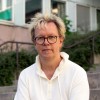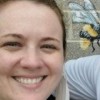Register based fertility research

What can we learn about today’s fertility in Europe from registers?
How can we increase accessibility of register data across Europe?
Register and other administrative data are core data sources of demographic and sociological research on contemporary fertility trends and patterns. Currently the use of register data for the purposes of fertility research remains largely focused on the Nordic countries, but these data are becoming increasingly accessible to researchers across Europe.
The EAPS Working Group on Register-Based Fertility Research aims at supporting this momentum of change, that is facilitating the use of existing and emerging register data sources for the purpose of studying fertility. Thereby the working group aims at contributing to high-quality and up-to-date research on fertility trends and patterns particularly in the context of contemporary Europe. It aims at providing a platform for discussing fertility research based on register and other administrative data and to facilitate networking opportunities among register data users, as well as between users and those interested in these data. It also offers a forum for discussing issues related to availability and challenges with access and content of these data. The group promotes cross-country and cross-regional analysis, and aims at including researchers from different career stages. The group activities are supported by the European Association for Population Studies (EAPS) and the Max Planck Institute for Demographic Research (MPIDR).
If you are interested in being part of this Working Group, please send an email to jonas.wood@uantwerpen.be
Events
Upcoming event
There will be an EPC 2026 side meeting in Bologna on 3 June! More information to follow.
Downloads
Previous events
The 2023 annual meeting took place on 11 October 2023 at the Federal Institute for Population Research (BiB) in Wiesbaden, Germany. The meeting consisted of talks, informal exchange, and networking and was held in connection to the conference Fertility and Family Dynamics in Migrant and Minority Groups: Current Research and New Approaches in Times of Crises, October 12 and 13 at BiB in Wiesbaden (Germany).
On 12 April 2023 the Working Group organized a meeting to enable dialogue between European and North American fertility researchers working with administrative data in connection to the Population Association of America PAA Annual Meeting in New Orleans.
The 2022 meeting of the Working Group was held December 15-16, 2022, at the MPIDR in Rostock, Germany.
Comparative research projects within the working group
The Working Group provides a platform for a number of ongoing or planned comparative fertility research projects listed below, which are based on register or register-like data. The respective project leader and her/his contact information is mentioned next to the project. These projects fall under two broad themes 1) Investigation of fertility trends and patterns across and within countries in Europe, and 2) Investigation of fertility trends and patterns across countries in Europe.
Steering Committee

JESSICA NISEN
University of Turku, Finland / MPIDR, Germany

Jonas Wood
University of Antwerp

GUNNAR ANDERSSON
Stockholm University, Sweden

TRUDE LAPPEGÅRD
University of Oslo, Norway

KELSEY Q. WRIGHT
Max Planck Institute for Demographic Research, Germany

KAREL NEELS
University of Antwerp, Belgium

Daniël van Wijk
NIDI, The Netherlands

Bernhard Riederer
University of Vienna, Austria
